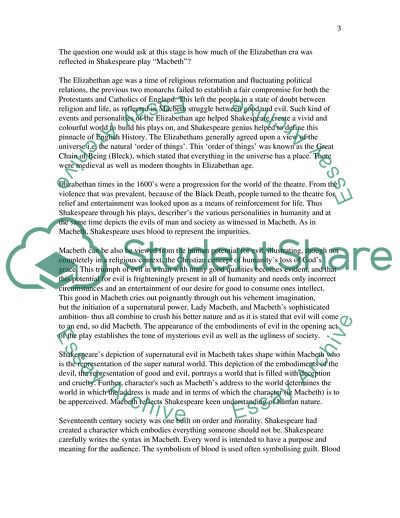Shakespeares Macbeth Essay Example | Topics and Well Written Essays - 1750 words - 2. https://studentshare.org/literature/1703689-macbeth
Shakespeares Macbeth Essay Example | Topics and Well Written Essays - 1750 Words - 2. https://studentshare.org/literature/1703689-macbeth.


